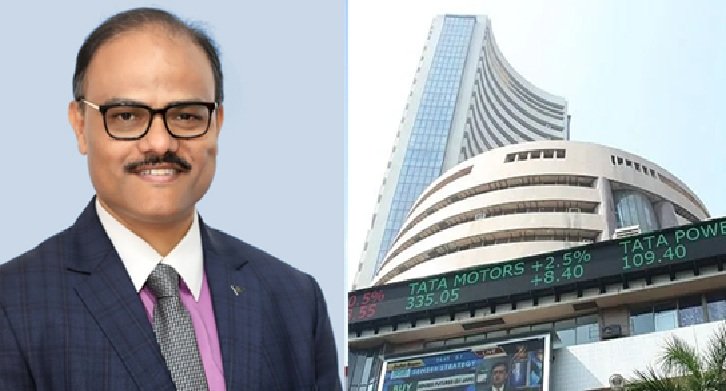-
TGI SME Capital Advisors posted an update in the group VRIGHT Exchange | CEO Insights Circle
1 month, 1 week agoBeyond Capital: Why SMEs Need Strategic Partners, Not Just Investors
By Ajay Thakur, Managing Partner, TGI SME Capital
Beyond Capital
In India’s dynamic growth story, SMEs stand as the silent engines powering innovation, employment, and wealth creation. Over the last decade, we have seen SMEs transform from local players into globally competitive businesses.Yet, for every SME that scales to the next level, there are several that struggle despite raising funds. The reason is simple: capital alone is not enough.
What SMEs truly need are strategic partners or suitable manpower who can navigate the companies through the complexities of growth, compliance, governance, and market positioning.
The Capital Conundrum
Raising funds has traditionally been perceived as the ultimate solution to an SME’s challenges. Access to capital does play a vital role in enabling expansion, technological upgradation, or working capital needs.
However, too many businesses discover after raising funds that money by itself cannot fix structural inefficiencies, improve governance, or build market trust.
This is where the gap lies. SMEs often lack access to mentors or suitable man power who can help them structure growth strategies, strengthen corporate governance, and align business models with long-term sustainability.
Without this support, capital risks being misallocated, leading to underwhelming outcomes for both businesses and investors.
Learning from Market Experience
India’s SME capital markets have seen both inspiring successes and disappointing failures.
On the positive side, companies with strong fundamentals and visionary leadership have delivered outstanding results.
For example, companies like Knowledge Marine & Engineering Works, Adiya Vision, Manorama Industries, Laxmi Goldorna House, Concord Control Systems and Advait Infratech have seen multiple jumps in revenue and profit.
The investors who have remained invested in these companies have made handsome returns.
On the other hand, several SMEs with weak governance, unsustainable business models, or inadequate disclosures have gone the opposite way.
In some cases, businesses declined so sharply post-listing that companies were suspended, and investors suffered huge losses.
This divergence highlights a crucial lesson: the market rewards discipline, governance, and growth, while punishing opacity, stagnation and week governance.
For SMEs aspiring to create lasting value, aligning with the right strategic partners can be the difference between being a short-lived story and a sustainable growth engine.
Evolving Regulatory Landscape
The year 2024-25 has seen issues of compliance, opacity and non-disclosure in a few SMEs who approached the Exchanges for their IPOs.This has also generated criticism about SME Platforms. In response, regulators have introduced changes by making the criteria for listing more stringent and raising the minimum threshold investment to two lots.
Recently, Exchanges have also tightened the guidelines for migration from SME board to the main board, making it significantly more difficult for smaller or less profitable companies to graduate.
At the same time, there has been no change in the guidelines for market making, which raises an important question about liquidity in those SMEs who have completed three years on the SME platforms.
The number of such companies is growing, and many investors may have exposure in them.These measures have been taken with the clear intent of facilitating only growth-oriented small and medium companies to get listed while protecting investors interests.
What Strategic Partnership Looks Like
A true strategic partner contributes in multiple dimensions:
• Governance & Compliance: Guiding SMEs to adopt best practices, transparent reporting, and board discipline.
• Capital Structuring: Helping align funding sources with business goals to avoid over-leverage or misallocation.
• Market Access: Opening doors to customers, vendors, and investors through established networks.
• Strategic Planning: Assisting in identifying growth areas, product diversification, and expansion strategies.
• Risk Management: Building resilience through better forecasting, financial prudence, and operational oversight.
In short, strategic partnership ensures that capital works as an enabler rather than a crutch.The Road Ahead for Indian SMEs
The next decade belongs to India’s SMEs. With global supply chains shifting, digital adoption accelerating, and domestic consumption rising, the opportunities are immense.
But seizing them requires SMEs to move beyond survival and short-term funding. They must focus on building sustainable businesses anchored in governance, innovation, and long-term vision. Strategic partners can catalyze this transformation by blending capital with counsel, and finance with foresight.
Together, SMEs and their partners can create businesses that not only deliver shareholder returns but also contribute meaningfully to India’s economic and social development.
Actionable Moves
For SMEs preparing to scale and list, here are concrete steps that can make the difference:
• Focus on Governance Early: Adopt transparent reporting, independent directors, and compliance systems well before approaching markets.
• Build Scalable Models: Ensure that growth can be sustained across geographies and cycles, not just in short bursts.
• Strengthen Capital Discipline: Avoid over-leverage and match funding sources with long-term business objectives.
• Engage with Strategic Partners: Seek advisors and institutions that bring knowledge, networks, and guidance beyond capital.
• Communicate Consistently: Regular updates to stakeholders build confidence and improve long-term market performance.
At TGI SME Capital, our mission is to stand beside SMEs as partners in their growth journey—equipping them not just with resources, but with strategic support. Because in the end, capital is only the beginning. Sustainable growth requires vision, discipline, and partnership.
_______________________________________________________About the Author: Mr. Ajay Thakur is CEO & Managing Partner at TGI SME Capital and a veteran of India’s SME capital market ecosystem. With over two decades of experience in developing equity markets and guiding entrepreneurs, he has been instrumental in shaping SME listing platforms and enabling family-run and first-generation businesses to access growth capital. His mission is to help Indian SMEs formalize, scale, and emerge as globally competitive enterprises.Reacted by Ayesha Aryan Rana -




